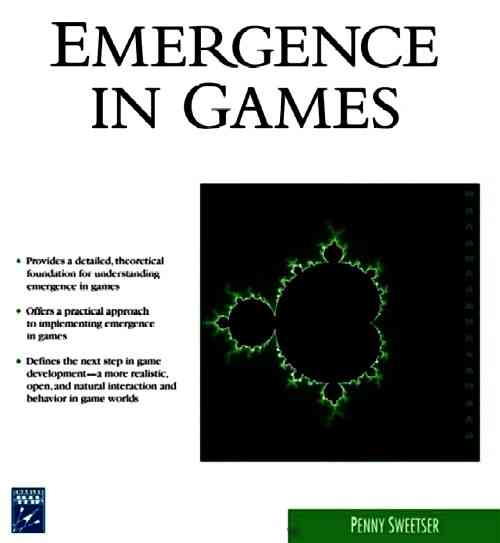
T he 23-year-old poet [Rainer Maria Rilke] encountered a phantom self in the Cornet—Rilke’s ancestor whose life was full of wide-eyed courage, action and discovery, but cut short. Rilke’s book was written feverishly, supposedly in just one night. Perhaps Rilke, suddenly aware of his own mortality, was also already aware that—although many of us continue living into more reflective, circumspect years—in a sense all of us die young, because the innocence of our young selves cannot survive the awarenesses that are the inevitable result of prolonged engagement with a troubled world.”
— Lisa Bielawa, program notes, The Lay of the Love and Death [of Cornet Christoph Rilke].
A t daybreak a horseman is there, and then a second, then four, ten. Armored-up, most of them. Then a thousand more behind them: the Army. One must separate oneself.You really should try to avail yourself of the opportunity to hear composer Lisa Bielawa’s new works in upcoming performances in Boston and New York (see links below). Bielawa has written a number of acclaimed chamber music compositions. She regularly writes choral and symphonic works that are also highly regarded.
‘Get home in one piece, Marquis...’
‘Mary protects you, Squire.’
But they cannot bring themselves to part yet. They are friends of a sudden, like brothers. They have more to confide in each other, for they already know so much each one of the other. They linger. Awkwardly. There’s haste and hoofbeat about them. Then the Marquis takes off his right glove. He fetches out the little rose, takes a petal from it ... takes it as one would take and break the host, the communion wafer.
‘That will safeguard you. Farewell.’
Von Langenau is taken aback. He gazes long after the Frenchman. Then he shoves the ad hoc petal into his shirtpocket. It rises and falls on the waves of his breath.
Bugle-call. He rides to join his regiment, Junker does.
He smiles sadly: a woman he does not know is protecting him.
[Einmal, am Morgen, ist ein Reiter da, und dann ein zweiter, vier, zehn. Ganz in Eisen, groß. Dann tausend dahinter: Das Heer.
Man muß sich trennen.
»Kehrt glücklich heim, Herr Marquis...«
»Die Maria schützt Euch, Herr Junker.«
Und sie können nicht voneinander. Sie sind Freunde auf einmal, Brüder. Haben einander mehr zu vertrauen; denn sie wissen schon so viel Einer vom Andern. Sie zögern. Und ist Hast und Hufschlag um sie. Da streift der Marquis den großen rechten Handschuh ab. Er holt die kleine Rose hervor, nimmt ihr ein Blatt. Als ob man eine Hostie bricht.
»Das wird Euch beschirmen. Lebt wohl.«
Der von Langenau staunt. Lange schaut er dem Franzosen nach. Dann schiebt er das fremde Blatt unter den Waffenrock. Und es treibt auf und ab auf den Wellen seines Herzens.
Hornruf. Er reitet zum Heer, der Junker.
Er lächelt traurig: ihn schützt eine fremde Frau.]”
— Rainer-Maria Rilke, De Weise von Liebe und Tod des Cornets Christoph Rilke
Bielawa’s conceptions of chamber music and musical intimacy are admittedly broader than most. Her scoring and novel orchestrations are wondrous. Bielawa’s nominally ‘symphonic’ works, such as ‘The Trojan Women’ (2002), entails a large orchestra performing virtuosically, but sans conductor. For the world premiere of her symphonic piece ‘The Right Weather’ (2004), orchestra members were spatially dispersed in and around Zankel Hall, at Carnegie, again performing without a conductor. As such, Bielawa’s symphonic compositions involve the emergent, multi-player intimacy that is characteristic of chamber music. The pieces just happen to involve conductorless ensembles that are the size of full orchestras, playing in halls whose ambient acoustics are larger and more reverberous than is usual for chamber music venues.

C oncert-hall venues impose social conventions upon classical music. I love orchestras. But I have a problem with the fact that it costs $65 to hear them, and somebody is waving a stick and s/he’s in charge.”Her conductorless pieces are fascinating to listen to and, I imagine, fascinating too to perform, as a member of such a peculiarly deployed ensemble. When done this way, the sense of acoustic depth can be cavernous—far larger than when the same number of performers are under the baton of a strong conductor. The communicative gestures that one uses to stay in-sync with others—or to encourage others nearby to sync-up with you—are complex and unfamiliar. And each performer’s maneuvers to recover or accommodate rhythmic and harmonic contingencies that arise are totally different from those that are routine in small ensembles. Creatively speaking, it’s like being placed in a wilderness survival situation. So much is uncertain. The inter-personal distances and vulnerability seem so great. So much, beyond what’s written on the page of music, can happen.
— Lisa Bielawa.
You become acutely aware of the extreme fragility, the tenuousness of the social fabric that defines the cooperation of the ensemble members. There are people here who, no matter how many years you’ve collaborated with them, you don’t really know very well, and who do not, when it comes down to it, know you. Nor do [some of them] care tremendously deeply about you as an individual. These things are hidden when there is a conductor…
In other words, you become acutely aware of the feral, borg-like ‘organism’ that the ensemble really is, and it is a very different kind of organism than, say, a string quartet. It is an alternate reality; there is no ‘spoon’, not really. (Not, anyhow, if you intend to bend the thing, pitting your will as a performer/ensemble-member against the psychokinetic wills of other fellow musicians.)
Lisa’s forthcoming CD, ‘The Lay of the Love and Death’, is also a meditation on the tensions between individual and collective action; between individual destiny and collective/societal destiny. It is due to be released next May by Premiere Commission Recordings, a new record label based in New York. The Lay was written for violinist Colin Jacobsen and baritone Jesse Blumberg and based on an epic poem by Rainer-Maria Rilke (‘Die Weise von Liebe und Tod des Cornets Christoph Rilke’), and was premièred at Alice Tully Hall in March 2006.
B ielawa’s music explores the ritual and phenomenological nature of music-making and listening, employing [emergent] instrumental forces in ways that are both dramatic and intimate in their use of time and space.”Lisa Bielawa’s choice of this Rilke text leverages her degree in literature and literary criticism. Rainer-Maria Rilke’s confabulation based on the death of his ancestor in battle is a dark tale—a study in the limits of human trust; the foolishness (but inevitability) of anticipation; the spontaneity (but random happenstantiality) of genuine friendships; the innateness (but immutability) of our character and personality. It is at once an affirmation of our moral duty to live thoughtfully and responsibly among other people, and at the same time an acknowledgment that the human condition is trouble, no guarantees. Create good and beauty in the face of the void because it is the right thing to do; do not do it in expectation of any reward, in this world or in any hereafter. There is emergent quality to the text, plus the timeless ‘thrownness’ of war. There is an emergent quality to Lisa’s compositional methods that lends a distinctive openness to her writing.
— Premier Commission Recordings jewel-case blurb.
Bielawa is currently composer-in-residence for the Boston Modern Orchestra Project. The present work, ‘The Trojan Women’, paints portraits of three grieving women—Hecuba, Cassandra and Andromache—who lost their husbands in the gruesome Trojan War. The three movements differ from each other in emotional content, tempi, harmonic textures, and modes of expression. But each conveys a distinc kind of mourning. Beautifully written.
[50-sec clip, Lisa Bielawa, First Takes, ‘Trojan Women-Andromache’, 1.2MB MP3]
[50-sec clip, Lisa Bielawa, First Takes, ‘Trojan Women-Cassandra’, 1.2MB MP3]

[50-sec clip, Lisa Bielawa, Handful of World, KafkaSongs-II, 1.2MB MP3]
[50-sec clip, Lisa Bielawa, Handful of World, KafkaSongs-VII, 1.2MB MP3]
W itty, dramatic and poignant by turns, [Bielawa’s ‘Handful of World’] songs offer a probing take on Kafka’s texts, and the scoring—for one performer simultaneously singing and playing the violin—makes possible all kinds of tonal resonances and multipart counterpoint. The other music ... is no less arresting or literarily astute.”Bielawa’s compositions are diverse, but they each bring character development and story-telling to the fore. And, having as I do some acquaintance with both composing and with computer game engineering, I would say that Lisa’s conductorless compositions contain some voice-leading and phrasing ‘devices’ that would be considered by game developers to be classic ‘anti-cheat mechanisms’, designed to insure continuity, preserving fairness and rationality of gameplay.
— San Francisco Chronicle.
There are few, if any, opportunities for rogue or errant ensemble members to ‘hack’ the score, or ‘cheat’, or ‘grief’ other players. Would-be ‘Hackers’ spend time discovering and testing exploits to commandeer the score and exert undue influence over the musical outcomes. Would-be ‘Cheaters’ spend time using the exploits devised by others, or riding on the coattails of Hackers’ exploits. Would-be ‘Griefers’ reinforce the side-effects of others’ exploits, to alter the sociology of the game-world and to subvert the score to suit their own purposes or to advance their own perceptions of its statements or value.
- Hack_type1: Client executable alteration (score annotations)
- Hack_type2: Rehearsal subversion (adjusting the ensemble's understanding of the inside lore of the game)
- Hack_type3: Part augmentation (injecting control through extra-textual embellishments)
- Hack_type4: Denial-of-service attack (preemptiveness or recalcitrance, forcing other ensemble members to accomodate the attacker)
Despite the large number of players (high cardinality) and despite the polyphonic complexity of her writing (high dimensionality), the architecture and phrasing constructs that Lisa uses are cohesive and self-repairing. The virtual sound-worlds she creates are stable. Their beauty can be edgy—there is nothing predestined or deterministic, for individual parts or for the ensemble/society. But the worlds do not readily fall apart nor do they make us worry that they might. Cohesive, stable ‘emergence’—for the individuals and for the group.
Emergence occurs when interactions between players and objects result in consequences that are not explicit in the text and performance rules, a sort of aleatoric runtime indirection that is spontaneous and not explicitly intended by the composer-developer. Emergence requires some stochastic or random elements, but it’s not predominantly random; satisfying types of emergence are reproducible from performance to performance, and they are memorable and rehearsible. That, I think, is a distinctive feature of Lisa’s compositions… Stockhausen and others, not so much.
What else? Well, systems—and compositions—that possess the quality we would call ‘emergence’ have, I think, the following minimal features:
- ‘Global’ phenomena emerge from ‘Local’ interactions among individual entities
- There is [usually] no evidence of the global phenomena at the local or individual level [like much of Elliott Carter’s writing, say];
- Global phenomena have a time-course that is different from the time-course of individual/local phenomena, and global phenomena are governed by different physics or collective forces than the ones that are exerted on individuals.
- First-order: When local interactions have ‘knock-on’ or chain-reaction effects and spread by contagion;
- Second-order: When players use the score and performance environment to improvise their own expressive strategies and deliberately enable para-social interaction types that were not created or intended by the developer; the improvised strategies in turn change how various contingencies in the game play out;
- Third-order: When new gameplay involves players’ carving new paths or creating new ‘public commons’, that are accessible to most or all players or that directly affect the overall, global character of play.

The Lay of the Love and Death of the Cornet’ is an early Rilke work, written in Berlin in 1899. The event that precipitated its writing was the discovery of a fragment of a family heirloom document, something from a trunk or attic in the Rilke house. He had no expectation of finding any such thing, nor was he planning to write any poem having to do with his ancestral history. This item was serendipitously noticed when he was browsing among some family papers. The document concerned one young Christoph Rilke, who was killed in Hungary in 1663 in a military campaign against the Turks. This fragment of a document concerning the young man’s duties as a cornet in the army was the only historical fact that Rilke had to go on; not much else was known about this Christoph, other than the meager bits that the document fragment contained. The story, however, almost wrote itself. Rilke’s vivid imagination produced overnight this poignant, open-ended 63-page romantic invention.
In similar fashion, Bielawa’s works—including the latest Rilke one—have likewise an open-ended, improvisational feel to them, regardless how carefully orchestrated her scores are. They are natural; playable; listenable. They sound so intuitively true, so plausible that you might imagine them to have almost written themselves, like Rilke in an inspired fever. They evoke a politics of ethical engagedness, an acoustic pluralism, and an expressive ‘commons’—all precious things in an age gone amok with private property, mutual misapprehension, isolation.
Have a look at Lisa’s compositions. They are like fantastic interactive fictions or MMRPGs, each inviting you to discover a richly detailed, extensible story. Consider adding one or more of her pieces to your group’s repertoire, not just to experience the beauty that’s in them but also to extend and further develop the ways that you have at your disposal to achieve new dimensions of expressiveness amongst your ensemble’s members. Lastly but not least, do buy and enjoy her recordings, and try to catch upcoming performances. You’re sure to be emergently pleased.
G ame developers [composers and conductors] and players [performers] speculate that it would be fantastic if we could achieve gameplay [performance] that is open and natural, where players can choose their own strategies independently, and the gameplay is limited only by each player's imagination and creativity. In recent years, games [compositions] have taken steps toward this with emergent interactions made possible by Valve Corp’s source engine and the availability of advanced game physics middleware... However, game developers [composers and conductors] realize the trade-off between emergence and design. Giving players control [means that the developers and conductors relinquish their own control].”
— Penny Sweetser, Emergence in Games, p. 3.
- Premier Commission Recordings
- Lisa Bielawa page at BMOP.org
- Lisa Bielawa page at Christina Jensen PR Inc
- Bielawa L, Narucki S. Chance Encounter. CreativeCapital.org, 2007.
- LisaBielawa.net
- OutsideTheBox: Election Night Free Improvisation at Judson Memorial Church, 55 Washington Square So., New York, NY. Tues, 04-NOV-2008, 18:00. Lisa Bielawa, host.
- BMOP Club Concert, Moonshine Room, ClubCafe.com, 209 Columbus Ave, Boston, MA. Tues, 09-DEC-2008, 19:00. Lisa Bielawa, host.
- Alexander T. Massively Multiplayer Game Development 2. Charles River, 2005.
- Bartle R. Designing Virtual Worlds. NewRiders, 2003.
- Bielawa L, Jortner I, Gatonska, M, Theofanidis C, Moravec P & String Orchestra of NYC. First Takes. (Albany, 2007.)
- Bielawa L, Kihlsted C, Leclair J. Handful of World. (Tzadik, 2007.)
- Bielawa L. Your Administrative Muse: Task-Management Strategies for Composers . NewMusicBox, 21-FEB-2007.
- Castronova E. Synthetic Worlds: The Business and Culture of Online Games. Univ Chicago, 2006.
- Crawford C. Interactive Storytelling. NewRiders, 2004.
- Rilke R. The Lay of the Love and Death of Cornet Christopher Rilke. Norton, 1963.
- Rilke R. De Weise von Liebe und Tod des Cornets Christoph Rilke. Gutenberg.org, 1899.
- Sheldon L. Character Development and Storytelling for Games. CourseTechnology, 2004.
- Shirky C. Here Comes Everybody: The Power of Organizing without Organizations. Penguin, 2007.
- Sweetser P. Emergence in Games. Charles River, 2007.
- DSM. Ying String Quartet: Zhou Long and Globalization of the Ineffable. CMT blog, 19-AUG-2008.
- DSM. Trio Con Brio: Individualism-Collectivism in Ensemble. CMT blog, 04-FEB-2008.

No comments:
Post a Comment